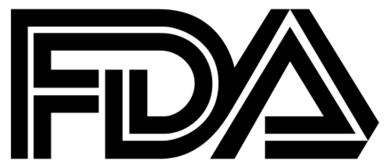Difference between revisions of "Food and Drug Administration"
Jump to navigation
Jump to search
(STub) |
(wider) |
||
| Line 1: | Line 1: | ||
{{group | {{group | ||
|start=1906 | |start=1906 | ||
| + | |image_width=390px | ||
|wikipedia=http://en.wikipedia.org/wiki/Food_and_Drug_Administration | |wikipedia=http://en.wikipedia.org/wiki/Food_and_Drug_Administration | ||
|image=Food and Drug Administration logo.svg | |image=Food and Drug Administration logo.svg | ||
Revision as of 01:50, 21 October 2014
 | |
| Formation | 1906 |
| Parent organization | United States Public Health Service |
| Type | |
| Subgroups | • Center for Biologics Evaluation and Research • Center for Devices and Radiological Health • Center for Drug Evaluation and Research • Center for Food Safety and Applied Nutrition • Center for Tobacco Products • Center for Veterinary Medicine • National Center for Toxicological Research • Office of Criminal Investigations • Office of Regulatory Affairs |
| Interest of | Whiteout Press |
| Exposed by | Ron Kavanagh |
Contents
Official narrative
The regulatory agency charged with the safety of food and drug products.
Regulatory capture
Of primary importance to the pharmaceutical industry, the FDA appears to be largely captured by outside forces.
Related Quotations
| Page | Quote | Author | Date |
|---|---|---|---|
| Iatrogenesis | “The death blow to FDA's safety function was AZT. After that, any potentially deadly disease became an excuse for curtailing clinical trials. Death by medication was normalized as an inherent part of progress.” | Celia Farber | 10 September 2021 |
| Regulatory capture | “The Food and Drug Administration. The FDA was charged with overseeing the manufacture of cereal, along with all other processed foods except meat and poultry, which were controlled by the Department of Agriculture. It steadfastly refused, however, to see sugar as a threat to the public's health. Moreover, it repeatedly declined to require food manufacturers to disclose, on their packaging, exactly how much sugar they were adding to their products... Where Washington had failed to act, two men working on behalf of the public took the Big Three on themselves. One was an enterprising dentist, Ira Shannon, with the Veterans Administration Hospital in Houston, who [in 1975], alarmed by the exploding rates of tooth decay he’d seen in his young patients, decided that he’d had enough. (By one estimate, there were at any given moment one billion unfilled cavities in American mouths.) So the dentist took a trip to his local supermarkets, brought seventy-eight brands of cereal back to his lab, and proceeded to measure the sugar content of each with damning precision. A third of the brands had sugar levels between 10 percent and 25 percent. Another third ranged up to an alarming 50%, and eleven climbed even higher still — with one cereal, Super Orange Crisps, packing a sugar load of 70.8%. When each cereal brand was cross-referenced with TV advertising records, the sweetest brands were found to be the ones most heavily marketed to kids during Saturday morning cartoons.” | Michael Moss | 2013 |
Employees on Wikispooks
| Employee | Job | Appointed | End | Description |
|---|---|---|---|---|
| Luciana Borio | Assistant Commissioner for Counterterrorism Policy | 2010 | 2017 | |
| Luciana Borio | Acting Chief Scientist | |||
| Ron Kavanagh | Drug Reviewer | 1998 | 2008 | Whistleblower |
Many thanks to our Patrons who cover ~2/3 of our hosting bill. Please join them if you can.